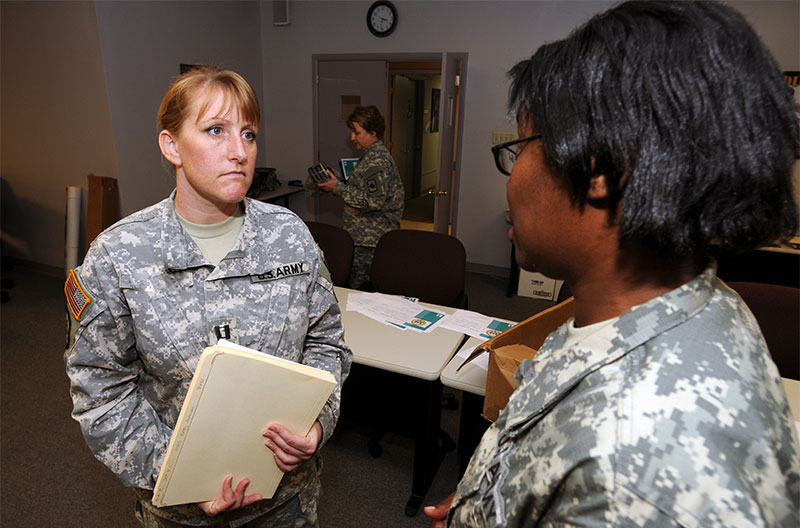Assess Your Openness
Reflect on your own willingness to seek and incorporate diverse ideas by using the tactics below.
Conducting a Personal AAR

Think back to a recent event during which a subordinate presented a new idea or another way of doing something.
- How did you react?
- Were you surprised by your reaction? If so, in what way?
- How could you improve upon your handling of the situation in the future?
Observing the Response to New Ideas

Think about your superiors, peers, and subordinates.
- How accepting are they of new ideas that come their way?
- Are they willing to change or are they stuck in “mental ruts”?
- Why do you think that is the case?
Knowing What You Don’t Know

Be open and honest about what you don’t know. Just because you’re a leader doesn’t mean you have to know all of the answers.
Take the example of a field artillery CPT on a military transition team (MiTT). The team was dealing with equipment that was new to the CPT, which he recognized, so he delegated to a SSG on his team who had experience with the equipment. The SSG appreciated that the CPT was willing to trust him. Never did he question the CPT’s leadership just because he didn’t have all of the answers.
Dealing with Superiors’ Ruts

Leaders can sometimes fall into mental ruts. Mental ruts are factors that might limit a leader’s acceptance of new ideas, whether it’s because a practice has always been done a certain way or because they can’t quite see the problem from a new perspective. Perhaps one of your greatest challenges is to create a climate different from the climate that your higher level has created for you. How do you use these strategies or others to turn-around a higher level climate that is not open and does not value diverse and creative ideas? Although there is no set way of accomplishing this task, consider the following strategies:
- Present your ideas in a group setting to your superior along with others who may have influence.
- Talk about your ideas informally to get feedback from others both within and outside your unit.
- Avoid the tendency to complain or whine about the issue; instead, focus on the positives and identifying solutions.
- Think about a plan B – is there a compromise you might be able to make to your original idea that your superior might be more receptive to?
- Discuss rather than confront – if you receive criticism, ask for feedback on how you can address it.
- Don’t allow your superior’s rut to affect your confidence. Keep track of ideas you might be able to use in the future, even if you aren’t having success getting them through now.